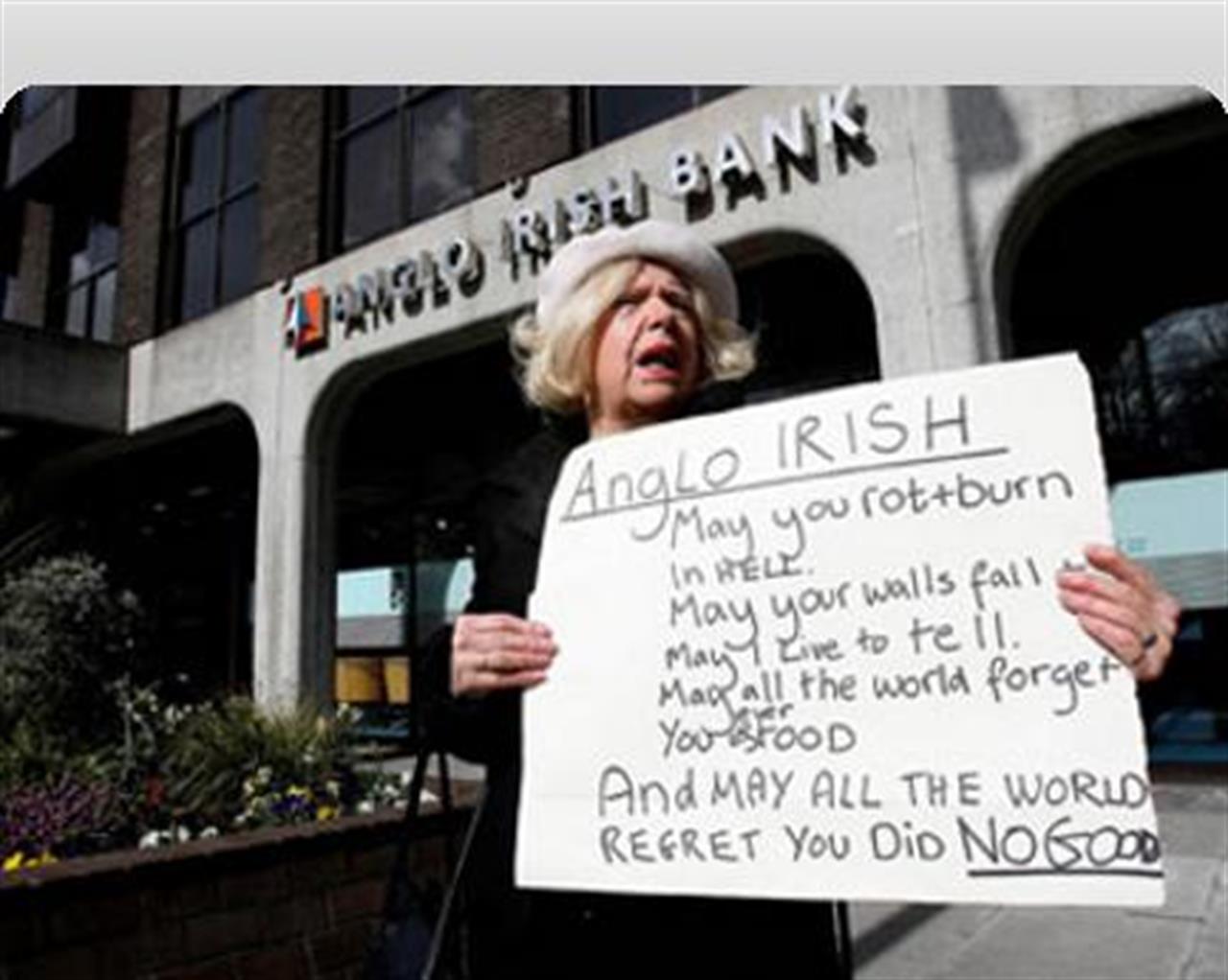Non profit
A social crisis in the making
Social organisations worry about the implications of more cuts but vow to continue serving the most vulnerable

Today the Irish government announced that the recession is worse than was previously assumed and to rescue the banks they will have to spend €5 billion more than they had initially projected to spend. The Irish Central Bank has confirmed that the total cost of the bank bailout could reach €34 billion.
Economists and bankers are pleased. They say that the government’s pledge to cover bank debt to foreign lenders should calm the markets. Patrick Honohan, the governor of the Irish Central Bank, says that this announcement, “takes the Irish banking system closer to a final resolution of its restructuring, which is a prerequisite for sustained economic recovery.”
Markets may be reassured, for now, but activists in the third sector worry about the impact of more funding cuts on the communities they serve and their own ability to continue to provide important services.
Ivan Cooper, head of advocacy at The Wheel, a network of Irish NGOs, says Ireland isn’t just facing an economic crisis, but a social crisis as well. As unemployment rises, so do social problems and the need for the social services that voluntary organisations provide.
This week, Finance Minister Brian Lenihan acknowledged that €3 billion would have to be cut from public spending in December. Ireland is under pressure from the European Union to bring its debt back under three per cent of the GDP by 2014.
This is not the first time the government has asked citizens to make huge concessions. Last December, €4 billion was axed from the budget. The government cut €760 million from social welfare programmes and €1 billion from public servant payrolls.
“Funding [to social organisations] has just disappeared,” says Lynda Stopford, head of engagement at Social Entrepreneurs Ireland.
Advocates agree that Ireland’s most vulnerable – young people, minorities and people with disabilities – will be hit the hardest by the predicted double dip recession and the soon to be announced €3 billion in cuts to the 2011 budget that will go before parliament on December 7.
Reflections from the field:
The Wheel’s head of advocacy, Ivan Cooper says, “Ireland cannot provide European level social services if it doesn’t have a European level tax take.” In the 1980’s Ireland adopted one of the European Union’s lowest tax take policies to attract foreign investment and companies, currently the Irish total tax take is less than 29 per cent of GDP, 10 per cent less than the European average. The Wheel is urging the government to rethink further budget reductions and advocating that they raise the tax take up to 35 per cent of GDP to “ensure that vulnerable people who are dependent on social services aren’t the ones who pay the whole price of the economic recovery.” Read more here…
Rachel Collier, co-founder of Young Social Innovators (YSI), an organisation that runs educational programmes for youth, says her budget has been cut by a third since 2008. Cuts have meant that her organisation has had to lay off staff and downsize national events. Regardless, she affirms that the financial crisis, “will not disenable us from providing educational services to young people in Ireland.” Collier explains that programmes like YSI give hope and empower young people in Ireland. She says the young generation “feels very angry right now, their trust is broken…they watch as the government pours billions of Euros into a big black hole. That is their future the government is spending.” Read more here…
The Social Entrepreneurs Ireland, a network for Irish Social Enterprises, was founded in 2004. Lynda Stopford, head of engagement for the organisation, says that social entrepreneurship is very new in Ireland but that it has long term economic and social potential as long as the “hit” from the recession doesn’t undo all the progress they have made over the past six years. “Social enterprises are used to running lean operations,” she says, “but after two years of funding cuts, organisations are starting to suffer.” Stopford hopes the government will be more creative with its next budget, she urges it to look at the “real value of this sector” before making more cuts. Read more here…
Si può usare la Carta docente per abbonarsi a VITA?
Certo che sì! Basta emettere un buono sulla piattaforma del ministero del valore dell’abbonamento che si intende acquistare (1 anno carta + digital a 80€ o 1 anno digital a 60€) e inviarci il codice del buono a abbonamenti@vita.it
